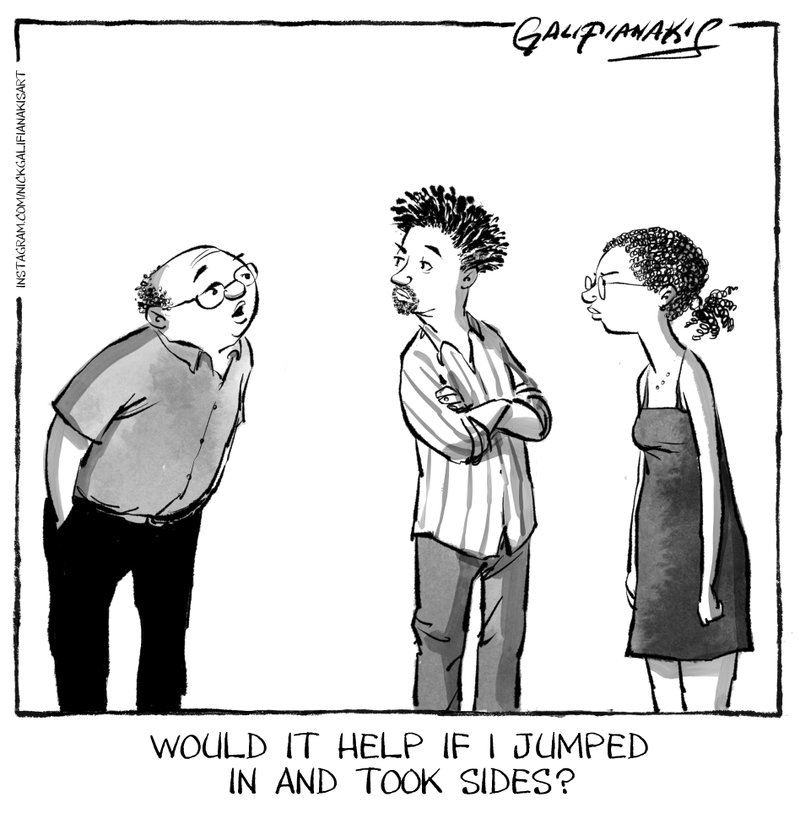DEAR CAROLYN: My wife and I are retired and have been very fortunate in the "family" department. I have two married daughters, six grandchildren and two terrific sons-in-law.
A few days ago, one of my daughters was annoyed that her husband was not helping and really lit into him for not assisting with the kids fast enough. Her request was more of a tirade than a plea for help.
At this stage of the game, is it ever appropriate for Dad to take a "child" aside and offer advice? Something like: "Sweetheart, I am very concerned that you humiliated 'Jack' when you wanted him to get moving. Wouldn't it have been better to gently remind him that you needed help?"
Or should I just stay out of it knowing my comments could cause further acrimony?
-- J.
DEAR READER: Stay out of it knowing you don't know everything you think you know.
You saw your daughter behave badly, yes.
But unless you're in this marriage yourself, you don't know the back story.
Your daughter could be emotionally abusive, and that would warrant prompt involvement by bystanders -- to let her know her behavior is not OK and to let Jack know you see this and will stand up for him. This is an especially powerful stand for an in-law to take.
It is also possible, however, that Jack routinely strands your daughter at key child-rearing moments, and the outburst you witnessed -- while still wrong, almost always -- could have been a onetime loss of composure over a valid, long-running complaint. Do you really want to be the dad who sided against your daughter in that conflict?
It could also be a one-off, a freestanding flip-out by an exhausted person who quickly regretted it and who poses a low risk to do it again.
Humility is our best friend. It urges us to say to ourselves in these situations: "I know what I witnessed, but do I know what it meant?"
Sometimes the answer will be yes, and you'll act accordingly. But asking yourself that question in this case -- I hope -- rewrites the script for what to say if you do draw your daughter aside:
"You really lit into Jack earlier. Are you OK?"
Since "you" in this context can mean your daughter or her and Jack as a couple or all of them as a family, it allows your daughter to interpret it as concern untethered to any specific assumptions -- which means (no guarantees, obviously) you're less likely to escalate tension and thus more likely to find out whether this family needs your help.
DEAR CAROLYN: When visiting friends or neighbors, there comes a time when we should go home. My spouse, however, ignores hints like multiple glances at the host's watch.
When I suggested a signal, it made my spouse angry. My spouse says I should simply state it's time to go home. What do you think?
-- We Should Go Home
DEAR READER: I don't even know what to do with the idea of getting "angry" at a hint. The suggestion of a hint.
But if we're talking about someone who doesn't respond well to reason and does respond to, "Hey, Pookie, I think it's time for us to go home," then that's what you say. Learn to accept a gift when you get one.
Chat online with Carolyn at 11 a.m. each Friday at washingtonpost.com. Write to Tell Me About It in care of The Washington Post, Style Plus, 1150 15th St. N.W., Washington, D.C. 20071; or email
tellme@washpost.com
Style on 10/01/2019
